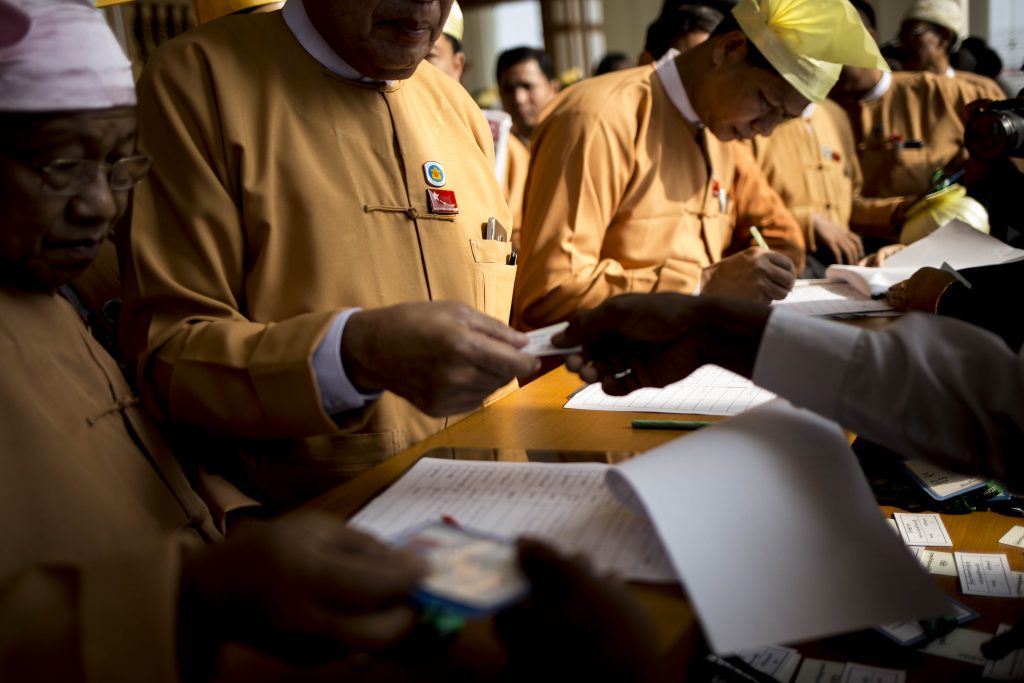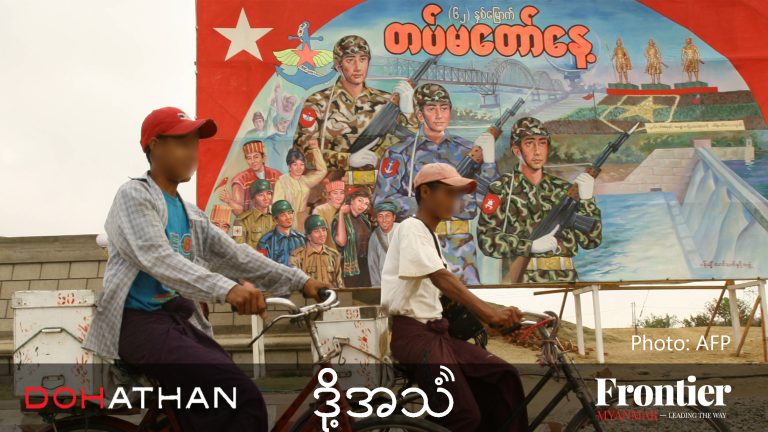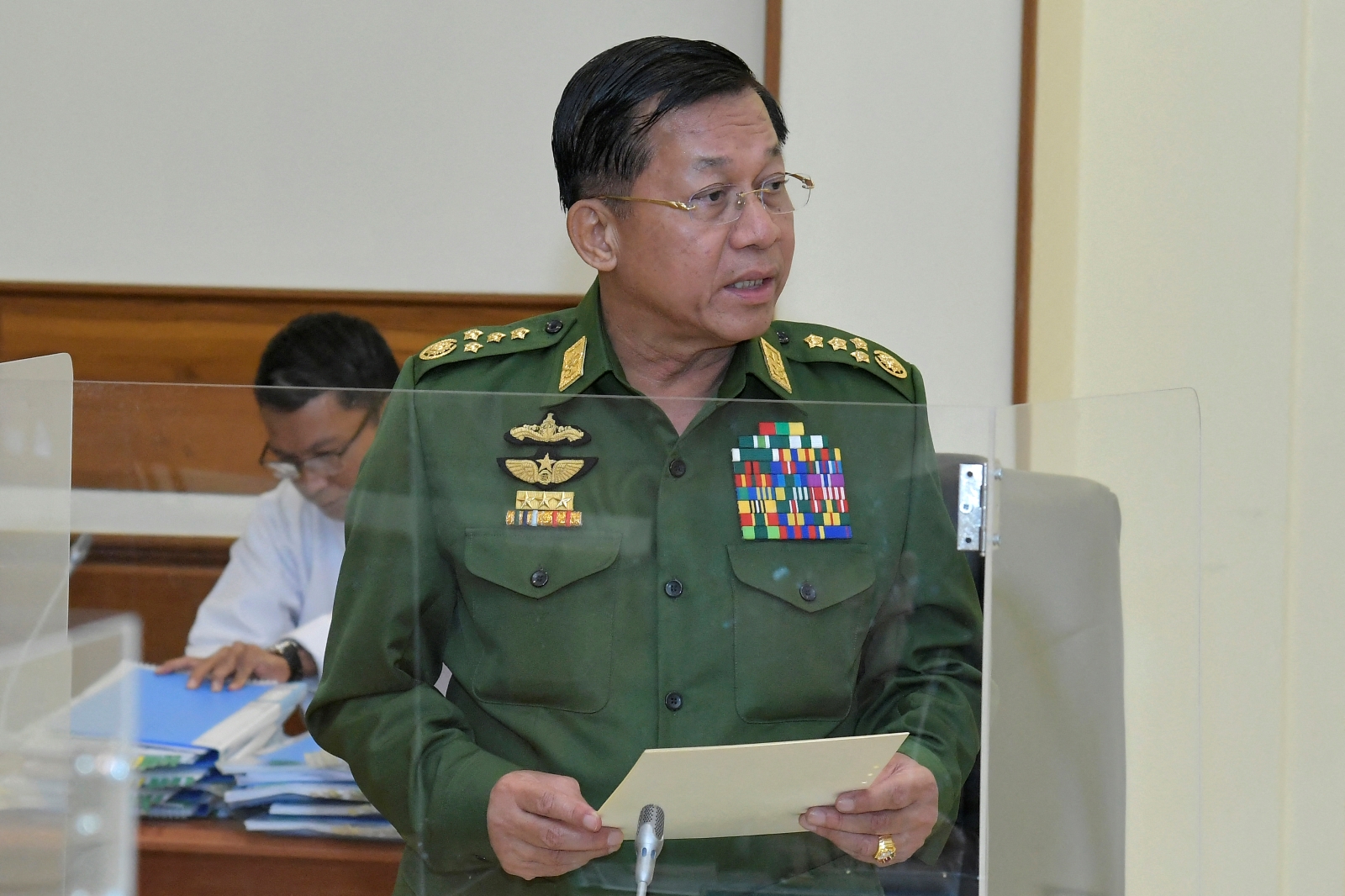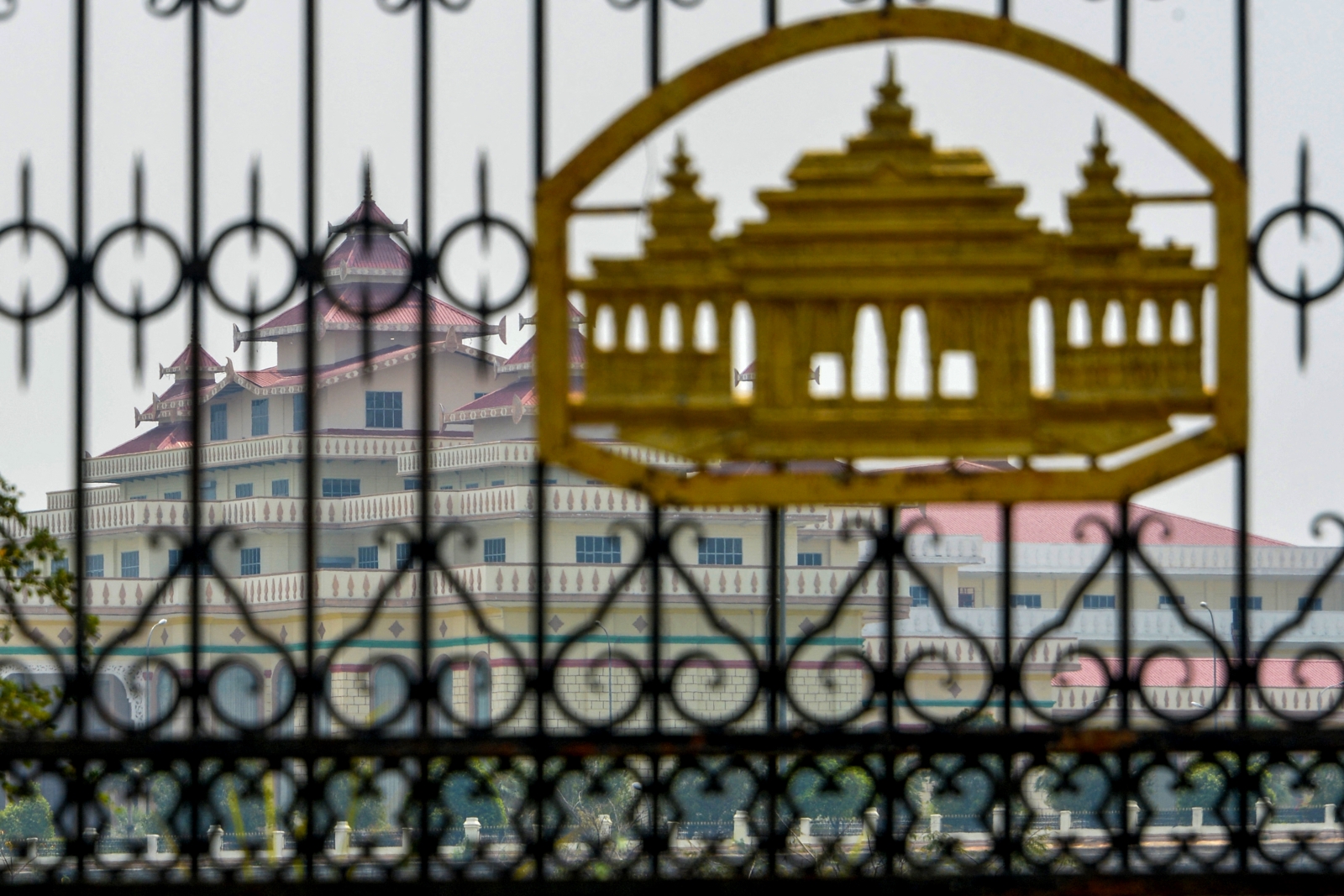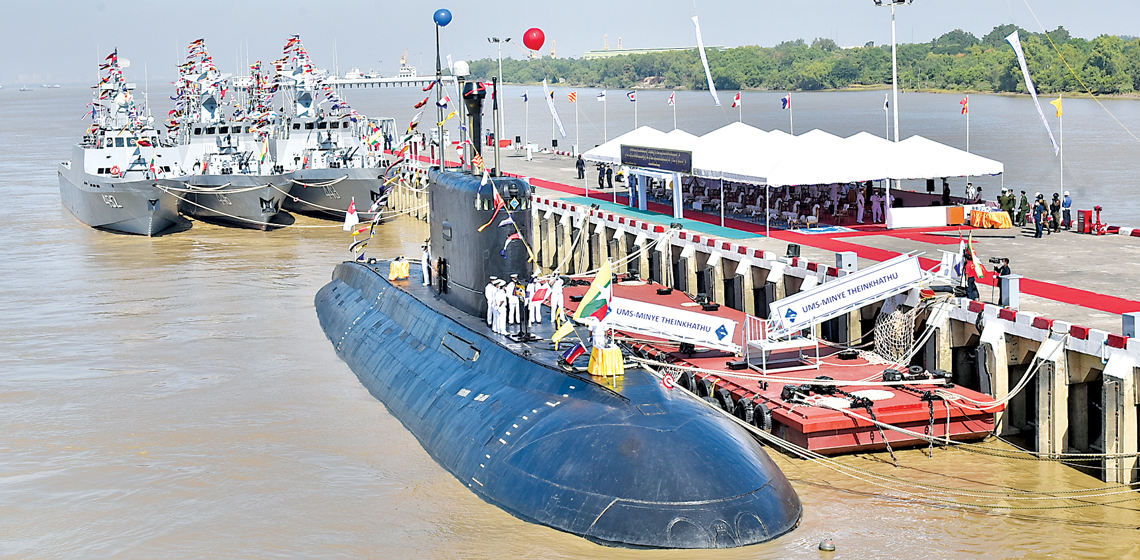As a new parliament convenes, the mood among MPs is far removed from the euphoria of five years ago, but the ruling party says it’s untroubled by electoral fraud allegations from the pro-military opposition.
By EI EI TOE LWIN | FRONTIER
When the new Union parliament begins its work on February 1, the benches will be full of familiar faces. Outdoing its landslide win in 2015, the National League for Democracy took 396 Pyidaungsu Hluttaw seats in the November 8 election. This is 59.64 percent of the parliament, when the 25pc bloc of unelected military MPs is included – and almost two-thirds of these NLD seats, at 268, will be taken by incumbents.
But while the Hluttaw may look similar, the mood will be substantially different from five years ago, when parliament flipped from being a chamber stuffed with ex Tatmadaw officers, junta-era functionaries and warlords to one dominated by veteran members of the democracy movement. Senior NLD leader U Win Htein recounted in his 2018 autobiography, Thanthayar Takywe (“The Life Circle”), how his eyes filled with tears on seeing the rows of new MPs in standard NLD pinni outfits during the first session of parliament in early 2016. He wrote that it felt as if the struggle for democracy, which had suffered miserably for decades, was finally having its moment.
Many of the new NLD lawmakers shared these emotions at the time, but Daw Thandar, who was re-elected in November to the Pyithu Hluttaw seat for Einme Township in Ayeyarwady Region, told Frontier she feels none of that excitement now. She’s focused instead on unfinished business from the outgoing parliament. “Many problems, especially land disputes, need to be resolved,” she said. “Although the government is doing reform, on the ground most departments haven’t changed and it’s difficult to deal with them.”
U Khin Cho, the incumbent Pyithu Hluttaw MP for Hlaingbwe in Kayin State, says he feels despondent about renewing his oath because he has not achieved enough over the last five years. He entered parliament in 2016 full of plans to improve the lives of his constituents. “I was really excited, thinking of what I could do, and I was keen to learn from others,” he said. “But I could not ask as many questions as I wanted, because each MP can only ask five questions in each regular session [of which there’s been 17 under the outgoing parliament].” Even when Khin Cho got a chance to speak, he said he struggled to influence the government. He recalled with bitterness how his proposal for a nationwide job creation plan to address chronic poverty was merely recorded and not acted on. “I hope I can do more in the incoming parliament,” he said.
But while incumbents like Daw Thandar and Khin Cho seem jaded, one parliamentary novice, U Tial Ling, was upbeat. “I got a chance to visit the Union parliament two years ago,” said the newly elected Pyithu Hluttaw lawmaker for Hakha in Chin State. “At that time, I thought one day I could sit in this room as an MP and participate in the discussion. Now it’s happening and I’m really excited,” he said. “Hopefully, I’ll be able to discuss the development of Chin State.”
One thing that is strikingly absent from the minds of these NLD lawmakers, whether incumbents or novices, is concern over the voluminous allegations of electoral fraud made by the Union Solidarity and Development Party, which suffered a humiliating loss in November, and the opposition party’s allies in the Tatmadaw.
The USDP and military have issued a flurry of statements in recent weeks, most of which highlighted errors and duplications in voter lists, and have demanded that the government and Union Election Commission “prove” that the election was free and fair. The military said in a January 20 statement that it has identified more than 7.6 million suspect votes, but the UEC has refused to engage with its allegations. The commission has even branded as “illegal” requests by the USDP and Tatmadaw for copies of documents that were publicly displayed, such as results sheets for polling stations and constituencies, and the final voter lists used on election day.
‘We don’t mind’
More than 200 MPs from the Tatmdaw, USDP and other opposition parties tried unsuccessfully to call a lame duck period of the Union parliament this month, so that their fraud allegations could be debated. While the constitution states that a special session must convene if requested by at least a quarter of the 664-member parliament, speaker U T Khun Myat refused to recall the chamber. He claimed that it was beyond parliament’s jurisdiction to address electoral disputes, which are the sole responsibility of the UEC, whose word is also final according the constitution. This leaves UEC-appointed tribunals as the USDP and military’s only legal recourse, and the following months will see these tribunals process scores of disputes.
The tribunals’ lack of independence has not inspired confidence, however, and the USDP and military have called the speaker’s decision unconstitutional. In its January 20 statement, the Tatmadaw highlighted article 20(f) of the constitution, which says the military is “responsible for safeguarding the Constitution”. Although this article might have been invoked merely to justify the Tatmadaw’s continued probing into the election, some have taken it as an implied coup threat. The USDP, for its part, says it is considering having its 33 elected Union MPs boycott the new parliament until its concerns are addressed. Party spokesperson Dr Nandar Hla Myint told Frontier on January 21, “We cannot say whether we will join or not.”
Nonetheless, NLD leaders and incoming MPs believe the new parliament will convene as planned, and the constitution seems to support this; article 85 states that a session of parliament requires that half of all lawmakers attend – a threshold the NLD clears automatically. NLD spokesperson and central executive committee member Dr Myo Nyunt told Frontier on January 20 that they would “continue according to the law” in inaugurating parliament, followed by a new government in late March. “It’s their business if they want to release statements about the election,” he said of the USDP and Tatmadaw. “We don’t mind.”
Political analyst U Yan Myo Thein dismissed the prospect of a crisis, pointing to article 85 of the constitution, which would render even a joint USDP-Tatmadaw boycott moot. “The start of parliament will be calm,” he said. “Although there have been controversies around the election, everything is going according to the 2008 Constitution written by the [former] military regime.”
Rather than responding to attacks on the legitimacy of its election victory, the NLD has been busy settling appointments for the new term. Parliamentary business begins with the election of speakers and deputy speakers in the Pyithu and Amyotha hluttaws, and Myo Nyunt said the NLD had already earmarked the MPs who will fill these roles.
Although the NLD also held a majority of seats in 2016, its MPs elected members of other parties to be deputy speakers of the upper and lower houses; and with senior NLD leaders recently floating the idea of a “national unity” government, the election of speakers and deputies could see it again reaching across the aisle. However, Myo Nyunt said the party’s central executive committee was keeping its choices “confidential” because “there could be last minute changes”. He merely said the committee had reviewed candidates’ performance over the last five years and selected those who would be “able to control the parliament”. He added that the chief ministers of states and regions had also been chosen, but again would not reveal names.
Besides the election of the president and two vice presidents from within the parliament, which is expected to happen in March, another top agenda item will be State Counsellor Daw Aung San Suu Kyi’s political future. With the constitution barring her from the presidency because her children are foreign nationals, the creation of the state counsellor position was the object of the outgoing parliament’s first bill, in early April 2016. Because this position’s tenure was tied to that of the government, her mandate will need to be renewed through another act of parliament, which observers expect to be undertaken swiftly. USDP and Tatmadaw MPs objected strongly to the original bill, calling it unconstitutional, but the NLD’s continued majority means another protest will be just as impotent.
Analyst Yan Myo Thein expected this and other parliamentary undertakings to spark tense confrontations between the NLD and the military-affiliated bloc, making the speaker positions vitally important, if unenviable. “How much tension there will be depends on how capable the speakers are,” he said. “They must be able to control parliament.”


